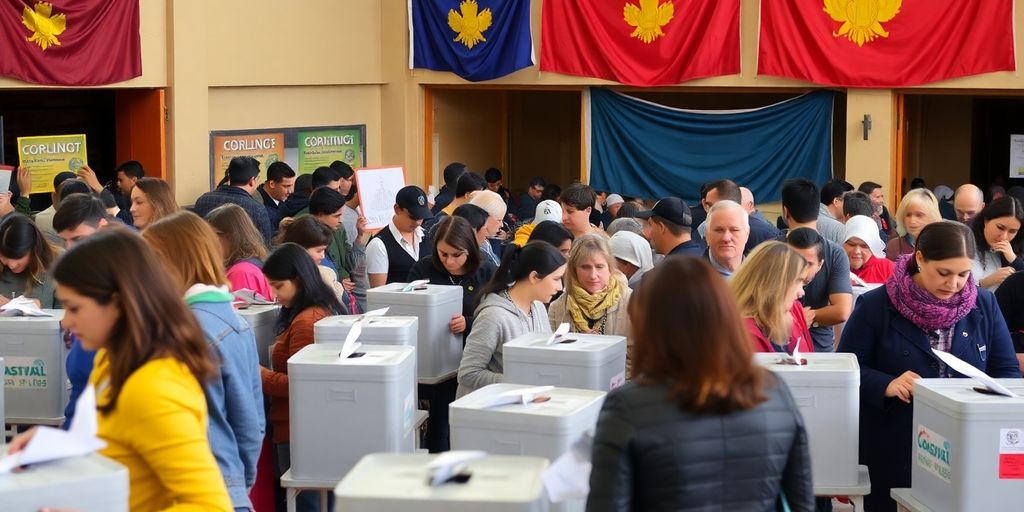Kosovo’s parliamentary elections on February 9, 2025, have raised significant concerns about the country’s political future. With Prime Minister Albin Kurti’s ruling party, the Self-Determination Movement (LVV), leading in polls but facing challenges in forming a majority, the outcome could lead to a coalition government or a political crisis.
Key Takeaways
- Albin Kurti’s LVV is projected to secure the most seats but may not achieve a majority.
- Economic issues dominate voter concerns, with many seeking change in governance.
- The election results could lead to prolonged coalition negotiations.
Background of the Elections
This election marks Kosovo’s fifth parliamentary vote since declaring independence in 2008. The previous election in 2021 saw a historic victory for Kurti’s LVV, which secured over 50% of the vote. However, expectations for a repeat performance are low, as voter sentiment appears to be shifting.
Electoral System and Main Contenders
Kosovo employs a proportional representation system with a 5% threshold for parties. The 120-seat Assembly includes 20 reserved seats for minority communities, including 10 for Kosovo Serbs. The main parties contesting the election include:
- Self-Determination Movement (LVV) – Led by Albin Kurti.
- Democratic Party of Kosovo (PDK) – Founded by former President Hashim Thaçi.
- Democratic League of Kosovo (LDK) – Established by the late President Ibrahim Rugova.
- Alliance for the Future of Kosovo (AAK) – Led by Ramush Haradinaj.
- Family List – A newcomer formed by former LVV members.
Voter Sentiment and Key Issues
Voter turnout was reported at around 40%, with many citizens expressing dissatisfaction with the current government’s performance. Key issues influencing voter decisions include:
- Economic Challenges: Kosovo remains one of Europe’s poorest economies, with high unemployment and emigration rates.
- Relations with Serbia: Kurti’s government has taken a hard stance against Serbian influence, which has polarized opinions among voters.
- Corruption and Governance: Criticism of unfulfilled promises and governance gaps has emerged, with opposition parties capitalizing on these sentiments.
Possible Outcomes
Given that LVV is unlikely to secure an outright majority, several scenarios could unfold:
- Coalition Government: If LVV cannot form a government alone, it may need to negotiate with opposition parties, which have historically been reluctant to collaborate.
- Political Crisis: A failure to form a government could lead to a prolonged political deadlock, complicating Kosovo’s governance and international relations.
Conclusion
The results of the parliamentary elections in Kosovo are poised to have significant implications for the country’s political landscape. With economic issues at the forefront and a divided electorate, the path forward remains uncertain. The coming days will be crucial as parties engage in negotiations to form a stable government, with the potential for either collaboration or continued political strife.
Sources
- Uncertainty Looms Over Kosovo’s Parliamentary Elections Today – tovima.com, tovima.com.
- Uncertainty looms in Kosovo parliamentary polls | Nation | communitynewspapergroup.com, Community Newspaper Group.
- Uncertainty looms in Kosovo parliamentary polls | National | lebanondemocrat.com, Lebanon Democrat.
- Uncertainty looms in Kosovo parliamentary polls | News | djournal.com, Northeast Mississippi Daily Journal.
- Uncertainty looms in Kosovo parliamentary polls, Yahoo News Singapore.






